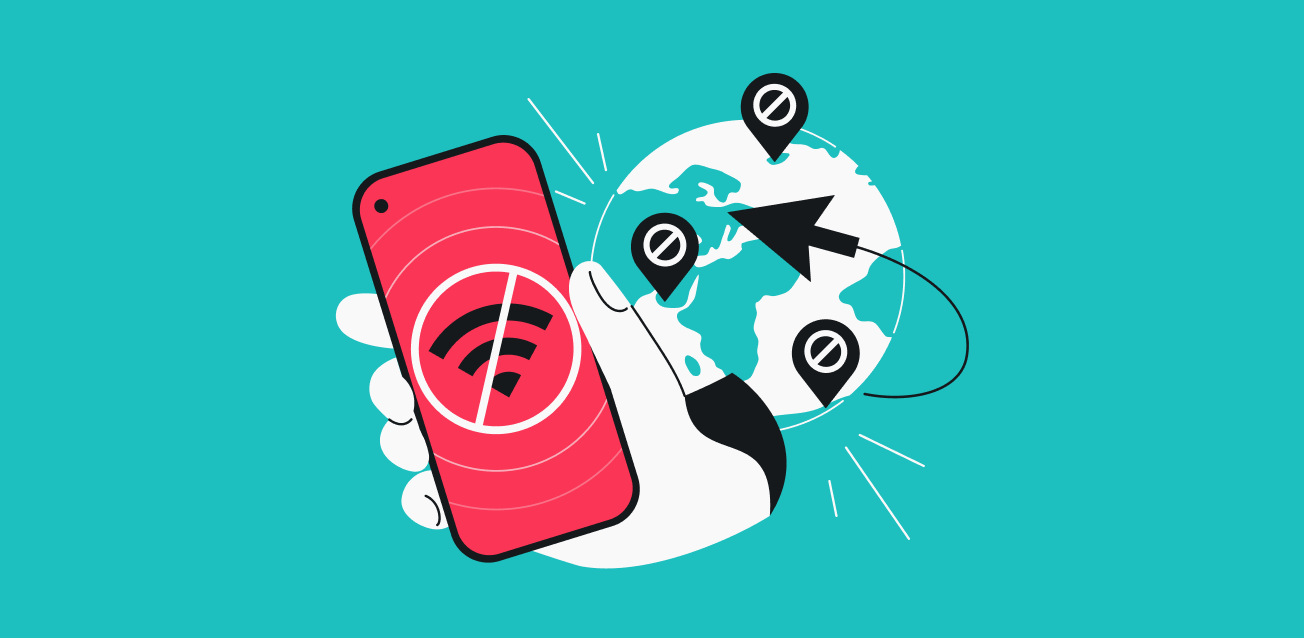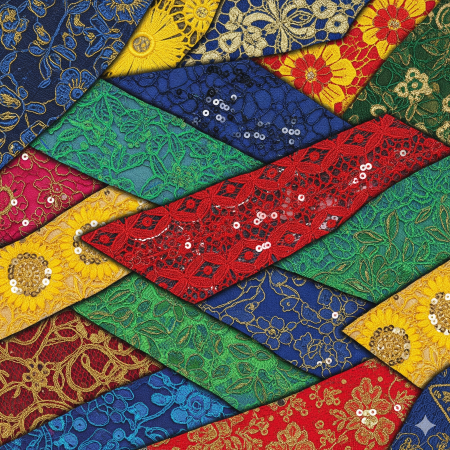How Internet Shutdowns Became Africa’s Favourite Tool of Silence

Cover Photo Credit: ICJ Kenya
AUTHOR: Bakare Zainab
How Internet Shutdowns Became Africa’s Favorite Tool of Silence
Let's travel back in time. It is October 2020 — the Nigerian youths take to the streets of every state in the federation, protesting against the brutality of the police. It is unusual for the youths to be organized and fight against one cause.
What started with one hashtag quickly graduated to a nationwide resistance. It was not just a protest; it was a generational awakening that captured global attention and defied the expectations placed on Nigerian Youths.
The government trembled — they had underestimated the power of the unity of the youths. They could not believe that the “Twitter” warriors would leave their keypads behind and physically make known their grievances.
It is June 5, 2021 — Twitter is banned. The battlefield of the youths is erased and the silence is no longer a choice; it is forced. The very platform that amplified their voices, mobilized support and documented their struggle has been erased with just one directive.
Photo Credit: Inc42
What are Internet Shutdowns?
Internet Shutdowns are the deliberate disruptions of internet or electronic communications, rendering them unusable for a specific population or location. Governments usually use this to suppress dissent and control information for a particular period. These disruptions could be localized blackouts, messing with internet speeds or blocking specific platforms, and in many cases, they come with little or no warning.
For years, governments around the world have used this method to suppress the voices of the oppressed — the voices that dare speak up against practices and policies that affect them.
Social Insight
Navigate the Rhythms of African Communities
Bold Conversations. Real Impact. True Narratives.
In 2019, the Iranian government, during the “Bloody November” protests, ordered a total internet shutdown, which lasted for five days. This prevented activists from passing across information, bringing the protest to an end. Amnesty International, in a report one year later, posits that this shutdown enabled the government to hide the human rights violations and death tolls.
In 2023, the Gabon government, also, ordered an internet shutdown during the elections, in a bid to counter the spread of violence and inciting information. The shutdown lasted for three days and 13 hours. It was reported a move by the president to stifle opposition to the election polls from his opponent.
These shutdowns are rarely about national security alone — they are calculated moves to suppress accountability, limit press freedom, and dismantle collective resistance. In an increasingly digital world where activism thrives online, internet blackouts have become the modern-day gag order, allowing governments to control the narrative and erase evidence of abuse. Whether it’s Iran, Gabon, or Nigeria, the message is the same — when the people speak too loudly, the internet is the first to go silent.
Photo Credit: Tech Economy
The Rise of Digital Repression in Africa
Governments in Africa have started to weaponize internet shutdowns. A report released by Access Now and #KeepItOn, established that there were a total of 21 internet shutdowns in 15 African countries in 2024, surpassing the total shutdowns that occurred in 2020 and 2021. Countries like Uganda, Gabon, Nigeria, Cameroon have restricted internet and social media access during civil protests or opposition movements.
In 2021, Uganda placed restrictions on social media platforms, citing spread of misinformation during the presidential elections. Although the ban was lifted on other platforms, Facebook still remains restricted till today.
These restrictions are no longer random or reactive — they are becoming an authoritarian playbook. A method to suppress resistance before it escalates.
Social Insight
Navigate the Rhythms of African Communities
Bold Conversations. Real Impact. True Narratives.
The Hidden Costs of Internet Shutdowns
These shutdowns do not just cripple activism and resistance, it affects the daily lives of citizens and the country, as a whole.
In a world where the internet is a necessity to thrive, shutting down the internet leads to direct attack on the economy. Business Day reported that $1.56 billion in economic losses were accumulated as a result of internet shutdowns in Africa, affecting about 111.2 million people, with Sudan garnering the highest loss with the highest times of shutdowns. This figure shows how interconnected the internet and national prosperity is.
Not just the economy is affected — a basic human right is violated. The freedom of expression is muffled as a tool of expression is removed. Democracy becomes more weakened, shrinking the civic space. Without the internet, the average citizen loses an essential tool for accountability and advocacy.
How Citizens are Fighting Back
Despite the efforts of the governments to keep and restrict citizens, the youths are fighting back. They find means to stay connected to the one channel where their voices are loud and heard.
During the seven months Twitter Ban in Nigeria, many youths still stayed connected, using the platform to air more controversial views. They used VPNs for continual usage.
Youths in restricted countries like Nigeria also do the same. They use VPNs, encrypted messaging apps, offline mesh networks and alternative communications, just to be in that space.
Social Insight
Navigate the Rhythms of African Communities
Bold Conversations. Real Impact. True Narratives.
Initiatives like the #KeepItOn campaign, led by digital rights groups, are pressuring governments to protect internet freedom and pushing for legislation against network interference. These campaigns also raise awareness on the importance of an open and accessible internet for all.
The Future of Internet Freedom in Africa
As internet access becomes essential to democratic participation, economic survival, and civic engagement, its restriction becomes a human rights issue.
Global organisations, civil society, and local advocates must act collectively to ensure that digital spaces remain open, secure, and free from state censorship.
The future of internet freedom in Africa depends not only on resistance but on institutional reforms, digital literacy, and legal protections for online expression.
A Battle Between Control and Connection
The growing trend of internet shutdowns across Africa reflects a deeper fear among governments — the fear of a digitally aware, united, and vocal citizenry.
But for every shutdown, a workaround emerges. The continent’s youth are not just users of the internet — they are its defenders. As African leaders tighten their grip on digital spaces, the battle lines are drawn not just in the streets, but online.
Because in today’s Africa, to cut the internet is to cut the voice of the people. And the people are not ready to be silent.
Social Insight
Navigate the Rhythms of African Communities
Bold Conversations. Real Impact. True Narratives.
AUTHOR: Bakare Zainab
You may also like...
When Sacred Calendars Align: What a Rare Religious Overlap Can Teach Us

As Lent, Ramadan, and the Lunar calendar converge in February 2026, this short piece explores religious tolerance, commu...
Arsenal Under Fire: Arteta Defiantly Rejects 'Bottlers' Label Amid Title Race Nerves!

Mikel Arteta vehemently denies accusations of Arsenal being "bottlers" following a stumble against Wolves, which handed ...
Sensational Transfer Buzz: Casemiro Linked with Messi or Ronaldo Reunion Post-Man Utd Exit!

The latest transfer window sees major shifts as Manchester United's Casemiro draws interest from Inter Miami and Al Nass...
WBD Deal Heats Up: Netflix Co-CEO Fights for Takeover Amid DOJ Approval Claims!

Netflix co-CEO Ted Sarandos is vigorously advocating for the company's $83 billion acquisition of Warner Bros. Discovery...
KPop Demon Hunters' Stars and Songwriters Celebrate Lunar New Year Success!

Brooks Brothers and Gold House celebrated Lunar New Year with a celebrity-filled dinner in Beverly Hills, featuring rema...
Life-Saving Breakthrough: New US-Backed HIV Injection to Reach Thousands in Zimbabwe

The United States is backing a new twice-yearly HIV prevention injection, lenacapavir (LEN), for 271,000 people in Zimba...
OpenAI's Moral Crossroads: Nearly Tipped Off Police About School Shooter Threat Months Ago
ChatGPT-maker OpenAI disclosed it had identified Jesse Van Rootselaar's account for violent activities last year, prior ...
MTN Nigeria's Market Soars: Stock Hits Record High Post $6.2B Deal

MTN Nigeria's shares surged to a record high following MTN Group's $6.2 billion acquisition of IHS Towers. This strategi...






